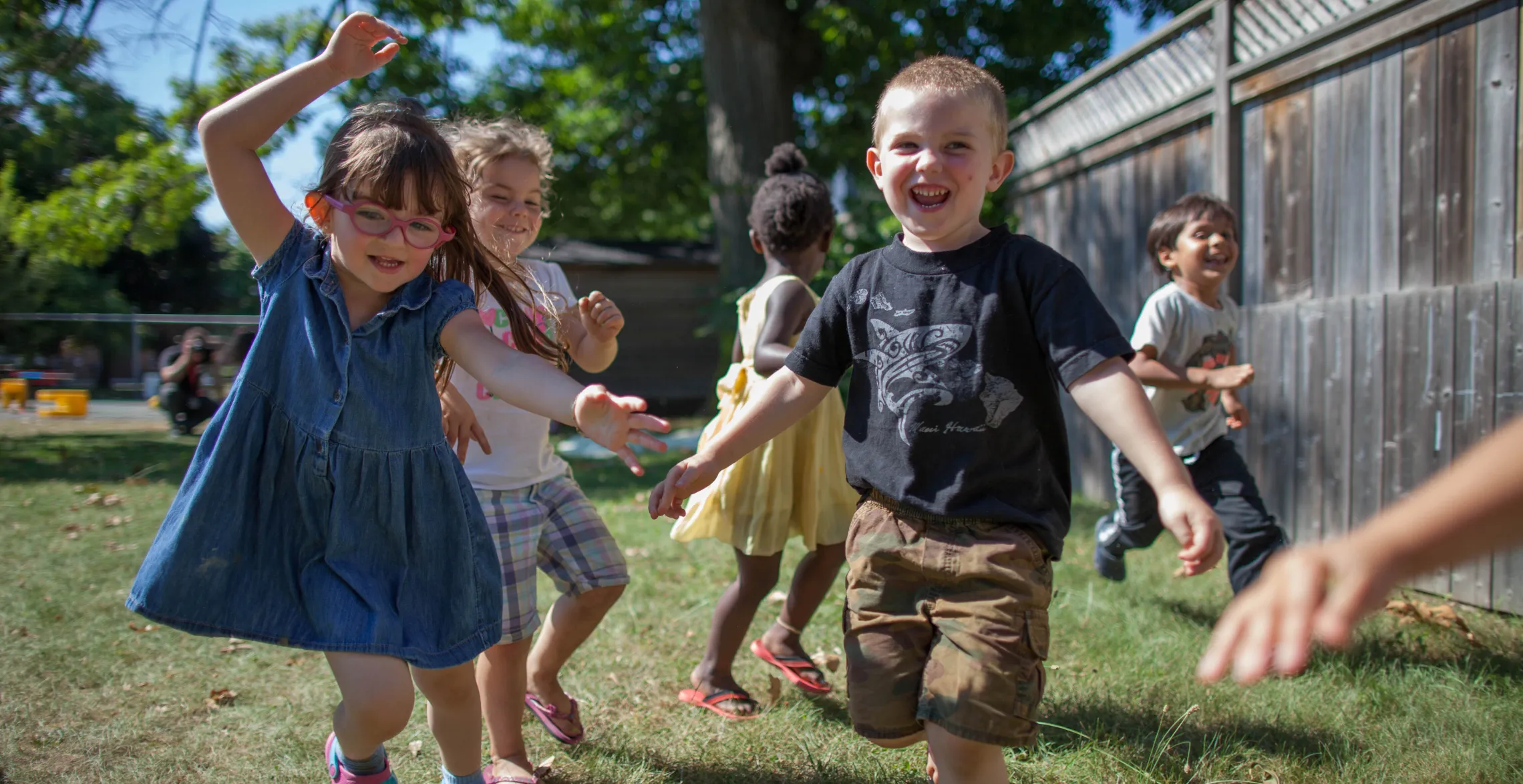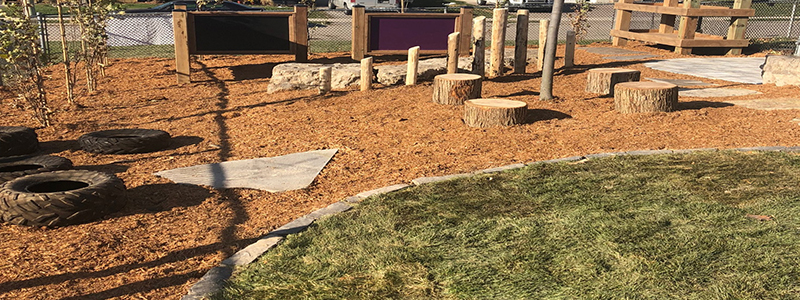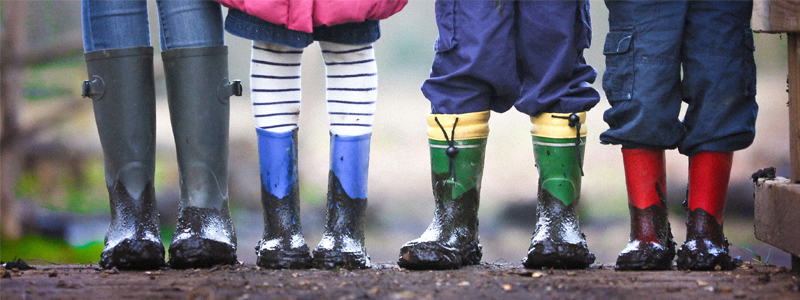
Outdoor Play
“I’m so grateful for the YMCA’s commitment to outdoor play. When I pick up my children at the end of the day, they are muddy, happy and full of stories. I can tell they have had the best day the messier they are.” - Tamara, Parent at Wortley YMCA Child Care.
At the YMCA, we know that play is a vehicle for natural learning and investigation. Our YMCA Playing to Learn curriculum supports health through regular exposure to the outdoors, recognizing the outdoor classroom and indoor classroom as equals. Unstructured play is about following the child’s lead and supporting their curiosities and interests while building their resilience and confidence.
Land Acknowledgement
The land on which we gather, learn, and play is the traditional territory of the Attawandaron, Anishinaabeg, Haudenosaunee, Lunaapeewak and Potawatomi peoples who have longstanding relationships to the land, water, and region of southwestern Ontario. The local First Nations of this area include Chippewas of the Thames First Nation, the Caldwell First Nation, Chippewas of Kettle and Stony Point, Oneida Nation of the Thames, the Delaware Nation at Moraviantown, the Munsee-Delaware Nation, and Walpole Island First Nation. Additionally, there is a growing urban Indigenous population who make the cities of Southwestern Ontario home. We value the significant historical and contemporary contributions of local and regional First Nations of Turtle Island (North America).
The challenge or risk in the outdoors is always in the eyes of the child. Supervision, engagement and planning is an intentional approach to leading children in outdoor exploration.
“Children gain new skills as they challenge themselves, thus risk is an important element of play, especially outdoors” (Martins & Huggins, 2015).
Our early childhood professionals follow the current research in support of outdoor play for children’s positive holistic development. This is embedded in our curriculum and emphasizes the importance of recognizing children as competent, capable individuals.
There are no expectations imposed by the educator or curriculum on where, with whom, or how long children play at one activity. That is for the child to choose based on their interests and engagement. The same consideration is given to activities or materials that involve an element of risk.
"The biggest risk is keeping kids indoors" (ParticipACTION, 2015).
Today, we are seeing an alarmingly low percentage of Canadian children meeting Canada's Physical Activity and Sedentary Behaviour Guidelines.
Benefits of Outdoor Play in minimally structured, accessible environments:
- Facilitates socialization with peers, community & the environment
- Reduces feelings of isolation
- Builds interpersonal skills
- Facilitates healthy development
(Tremblay et al., 2015).



